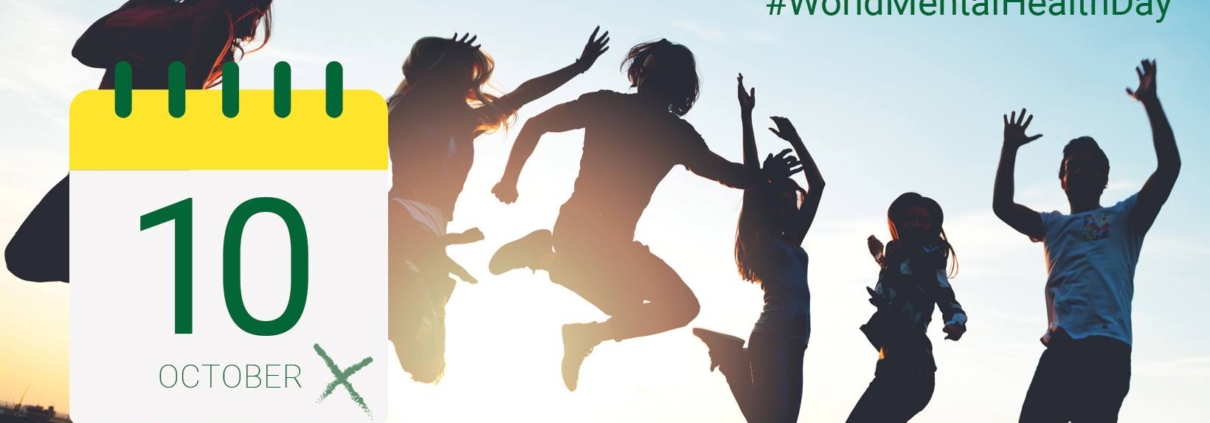World Mental Health Day 2018: Resource Round-Up
Today is World Mental Health Day, an annual awareness and education initiative spearheaded by the World Federation for Mental Health (WFMH). This year’s campaign highlights the importance of increased mental health awareness, services, and care for young people in a changing world.
Through NEDA’s Student Life initiative, we’ve heard from our young constituents about the need for increased awareness and resources. We have also seen the impact young people have when joining forces in eating disorders and mental health advocacy and activism. While eating disorders and other mental health conditions affect people at all stages of life, young people are particularly vulnerable to (cyber)bullying, low self-esteem, body dissatisfaction, self-harm, and suicidal ideation; all of which are potential risk factors for disordered eating and co-occuring disorders.
In honor of World Mental Health Day 2018, we compiled a roundup with relevant statistics, blog posts, and resources.
Statistics
Eating disorders are serious conditions that can have a profound mental and physical impact, including death. This should not discourage anyone struggling—recovery is real, and treatment is available.
- Young people between the ages of 15 and 24 with anorexia have 10 times the risk of dying compared to their same-aged peers
- By age 6, girls especially start to express concerns about their own weight or shape. 40-60% of elementary school girls (ages 6-12) are concerned about their weight or about becoming too fat. This concern endures through life.
- Up to 40% of “overweight” girls and 37% of “overweight” boys are teased about their weight by peers or family members. Weight teasing predicts weight gain, binge eating, and extreme weight control measures.
- Approximately one in four people with an eating disorder has symptoms of post-traumatic stress disorder (PTSD).
- Certain psychiatric disorders, particularly obsessive-compulsive disorder, mood disorders, and personality disorders, frequently are found among those with eating disorders, with estimates ranging from 42-75%.
- Despite similar rates of eating disorders among non-Hispanic whites, Hispanics, African-Americans, and Asians in the United States, people of color are significantly less likely to receive help for their eating issues.
Click here for additional statistics and citations.
NEDA Blogs
8 Celebrities Who Courageously Opened Up About Their Mental Health Struggles
How Facebook is Connecting People to Vital Mental Health Resources
How to Find Affordable Mental Health Support in College
Eating Disorders Among LGBTQ Youth
Learning to Live Well with Depression and Eating Disorders
Don’t Go the Journey Alone: This is How You Can Develop the Ultimate Support System in Recovery
For recovery resources and treatment options, please visit our help and support page. If you or someone you know is struggling with an eating disorder, call ANAD’s Helpline at: (888) 375-7767 or the National Alliance of Eating Disorders Helpline at: (866) 662-1235.
If you are thinking about suicide, call or text the National Suicide Prevention Lifeline at 988. In crisis situations, text “NEDA” to 741741 to be connected with a trained volunteer from the Crisis Text Line.
Chelsea Kronengold, MA, has been involved with the National Eating Disorders Association (NEDA) since 2012 and currently serves as the Senior Communications Associate. Chelsea oversees NEDA’s social media and communications, and is a master trainer for NEDA’s implementation of the Body Project. Chelsea frequently speaks on behalf of NEDA about her personal and professional experience with body image, eating disorders, media literacy, and weight stigma; she has appeared in national media platforms including Teen Vogue, Huffington Post Live, Seventeen Magazine, WebMD and SiriusXM Doctor Radio.





